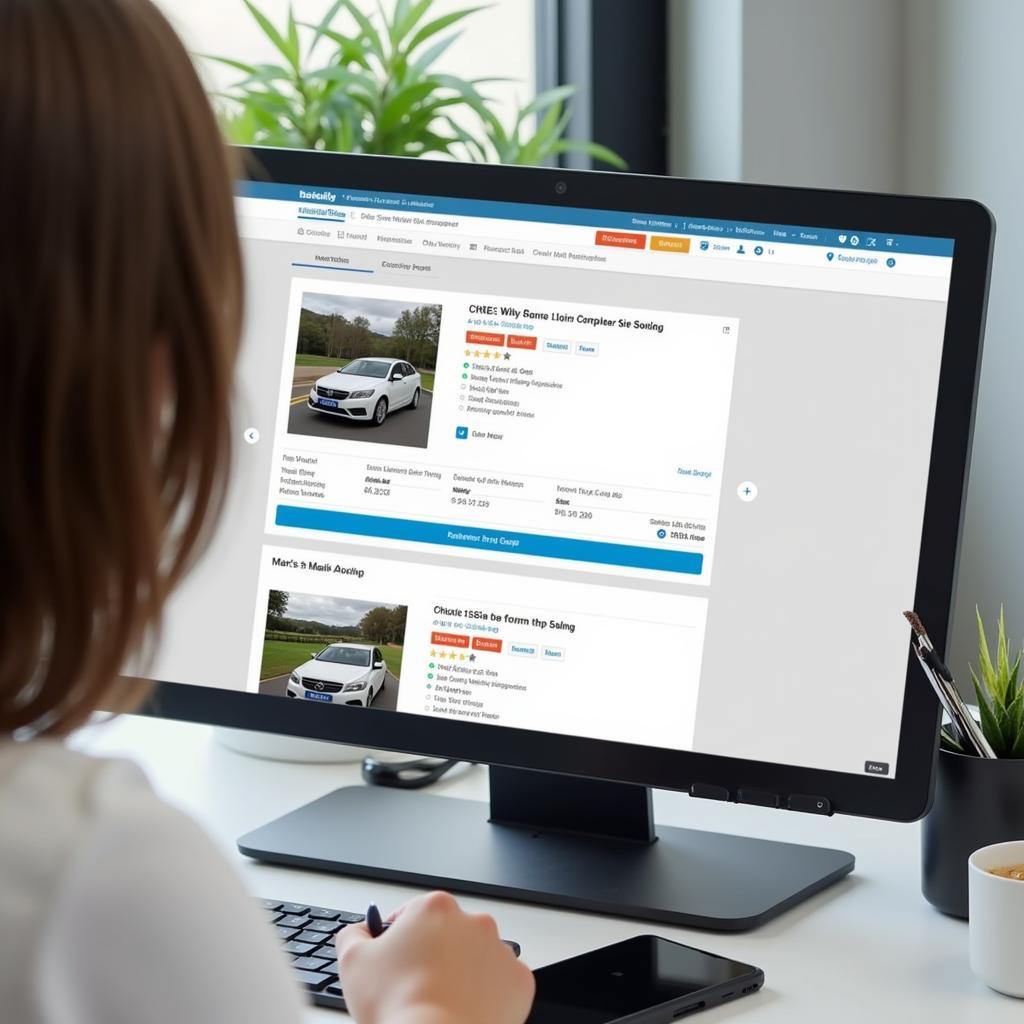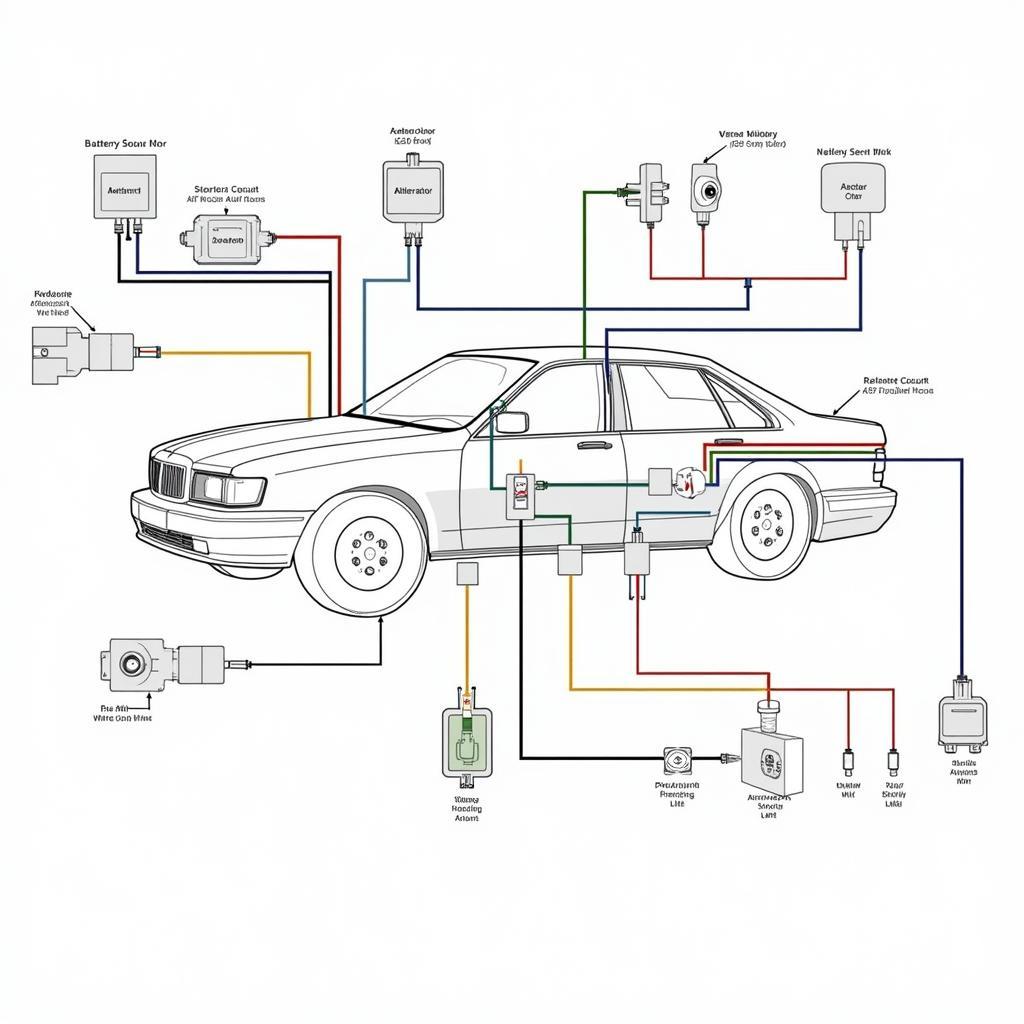Trading in a car with problems can feel like navigating a minefield. You want the best possible deal, but mechanical issues, body damage, or even a salvaged title can make the process seem daunting. Don’t worry, it’s absolutely possible to trade in a problematic car. This guide will walk you through How To Trade In A Car That Has Problems and get the most for your trade.
Understanding Your Car’s Issues and Your Options
Before heading to a dealership, take stock of your car’s condition. Be honest with yourself about its problems. Are they minor cosmetic issues, or significant mechanical failures? Knowing the extent of the damage helps you determine your options and manage your expectations regarding trade-in value.
Assessing the Damage
Accurately assessing the damage is crucial. A thorough inspection by a trusted mechanic is recommended. This provides a professional opinion and documentation, strengthening your position during negotiations. Remember, transparency is key when learning how to trade in a car that has problems.
Repair or Trade As-Is?
Deciding whether to repair your car or trade it as-is depends on several factors. Minor repairs, like fixing a broken tail light, can increase your trade-in value and are often worth the investment. However, major repairs, like engine or transmission work, might not yield a worthwhile return.
 Assessing Car Damage Before Trade-In
Assessing Car Damage Before Trade-In
How to Trade In a Car That Has Problems: Step-by-Step Guide
Trading in a car with issues requires a strategic approach. Here’s a step-by-step guide to help you navigate the process:
- Research Your Car’s Value: Use online tools like Kelley Blue Book (KBB) or Edmunds to get an estimated trade-in value, considering its condition. Be realistic – problems will lower the value.
- Gather Documentation: Compile all maintenance records, repair history, and any relevant documentation related to the car’s problems. This builds trust and transparency with the dealer.
- Get Multiple Trade-In Offers: Contact several dealerships, both new and used, to get competitive offers. Don’t settle for the first offer you receive. Shop around and leverage offers against each other.
- Be Upfront About the Problems: Don’t try to hide the issues. Be transparent with the dealer about the car’s problems. This fosters trust and prevents potential complications later.
- Negotiate the Best Deal: Even with a problematic car, there’s room for negotiation. Focus on the overall deal, including the price of the new car and financing terms, rather than solely on the trade-in value.
 Comparing Trade-In Offers from Different Dealerships
Comparing Trade-In Offers from Different Dealerships
Negotiating with Dealerships
Negotiating with dealerships when you have a problematic car requires a confident and informed approach. Knowing the market value of your car, even with its issues, empowers you to negotiate effectively.
“Dealerships expect some negotiation. Don’t be afraid to push back on their initial offer, especially if you’ve done your research and have other offers in hand,” advises John Smith, Senior Automotive Technician at Reliable Auto Repair.
Alternative Options to Trading In
Trading in isn’t the only option for a car with problems. Consider these alternatives:
- Selling Privately: Selling privately can potentially yield a higher return than a trade-in. However, be prepared to handle inquiries, negotiations, and paperwork yourself.
- Selling to a Junkyard or Scrap Yard: For cars with significant damage or mechanical issues, selling to a junkyard might be the most practical solution.
- Donating Your Car: Donating your car to a charity can provide a tax deduction and support a worthy cause.
 Selling a Car Privately Through Online Platforms
Selling a Car Privately Through Online Platforms
Conclusion
Trading in a car with problems is achievable with the right approach. By understanding your car’s issues, exploring your options, and negotiating strategically, you can secure a fair deal. Don’t let car troubles deter you from upgrading to your next vehicle. Remember, transparency and research are your best allies. If you need expert advice, connect with AutoTipPro at +1 (641) 206-8880 or visit our office at 500 N St Mary’s St, San Antonio, TX 78205, United States. We’re here to help you navigate the process of how to trade in a car that has problems.
“Remember, even a car with problems has value. It’s about finding the right buyer or leveraging its value in a trade,” says Maria Garcia, Certified Automotive Appraiser at Value Auto.





Leave a Reply